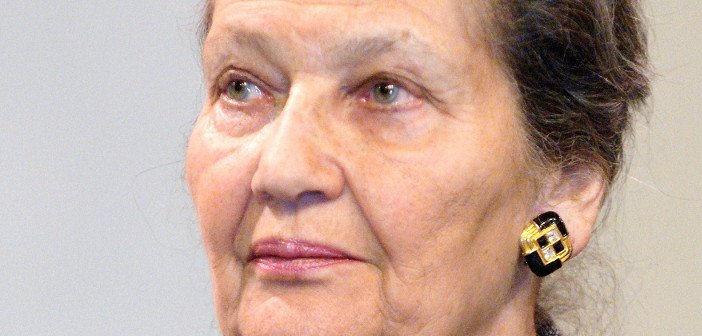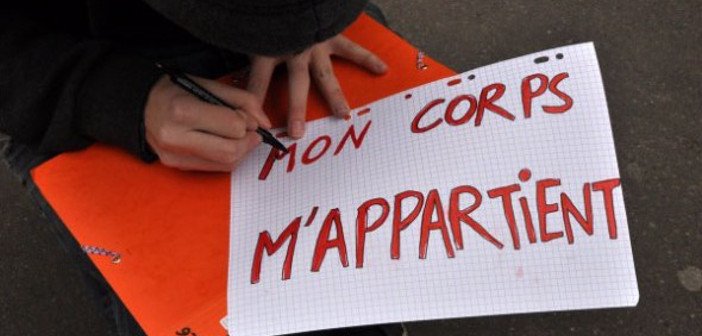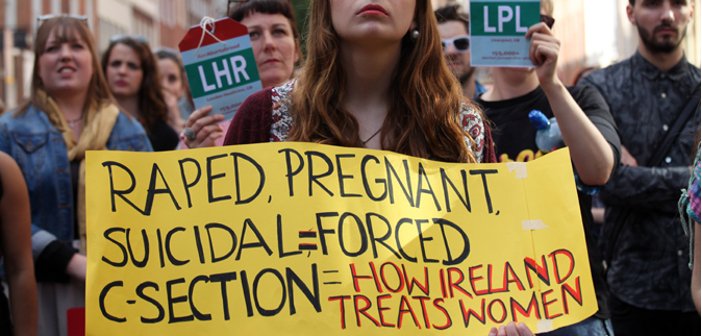Abortion in France | Living in a Country with Accessible Reproductive Rights
The Irish abroad. We hear so much about the negative side of mass emigration. Moreover, what about those who do it alone? The reality goes something like this: detachment from family, friends, cultural references, comedy, wet and windy island weather, innumerable cups of strong black tea per day, cheese and onion crisps, hot whiskies.
There comes a day, however, when you realise that the situation isn’t actually so rosy; particularly if you have to deal with the unexpected. The Irish government persists in denying Irish women and men access to reproductive health rights. In my host country, things are different.
Reproductive rights were introduced in France in 1975 by Madame Simone Veil, a successful and highly respected politician. After much difficulty from the opposing public and fellow politicians, she persevered and convinced the French National Assembly that the right to abort an unwanted pregnancy was necessary for the future of all women and families in France.

From 2006 to present, the amount of women who have abortions in France has remained stable, at about 220,000 per year, with 27.5 being the average age that French women have an abortion. Interestingly, the social security system in France is organised in such a way as to reimburse medical procedures, including abortion, for all those who are covered. This accounts for 90% of people.[pullquote] The social security system in France is organised in such a way as to reimburse medical procedures, including abortion, for all those who are covered.[/pullquote]
So, how do these rights translate in 2016?
I was lucky enough to volunteer in a local Family Planning Centre in a town near Strasbourg. This inside experience transformed my whole outlook on the difficult and complex situations women face on a day-to-day basis. The centre orientates and informs the public on contraceptive options, abortion, domestic violence, forced marriage, and HIV and STI testing.
Regular annual activities involved engaging with over 50 girls and women from all walks of life regarding the questions they didn’t dare ask anybody else, and particularly, their struggles with unwanted pregnancies – a small pill forgotten, the worst nightmare of a late period.

Having worked with these women, there is one thing I know for certain: no typical personality, class, age, or skin colour can be attributed to those who seek to proceed with an abortion. The reality of these women’s situations is never easy to deal with. But they do deal with it, and they move on to happier relationships, better careers, and more fulfilling lives into which, one day, they might decide to bring a child.[pullquote]Having worked with these women, there is one thing I know for certain: no typical personality, class, age, or skin colour can be attributed to those who seek to proceed with an abortion.[/pullquote]
Alongside all of this work, the volunteers and social workers of the Family Planning Centre also organise classes in local secondary schools on the importance of respect in girl-boy relationships. The aim of these projects is to discuss, inform, and educate teenagers about the opposite sex in a continued effort to create loving, safe, and respectful relationships in later life.
The grass, however, isn’t as green as we might have thought. In France, abortion is legal up until the fourteenth week of pregnancy. And, of course, there are women who seek terminations after this time. They are forced to go abroad to get the treatment they need. In the French Family Planning Centre, we direct women to the Netherlands and Spain – countries where they allow abortions up until 23 weeks of the pregnancy.

Some politicians and non-governmental bodies describe the fact that women have to travel and pay for this procedure without any support from the State as “administrative violence.” Every year, approximately 6,000 French citizens make the journey abroad. And yet, even the country that promotes equality can’t silence the opposition.[pullquote]When one searches ‘IVG’ (Interruption Volontaire de Grossesse – Voluntary Pregnancy Termination) on Google, the first result that appears for this legal procedure is a misleading pro-life website.[/pullquote]
When one searches ‘IVG’ (Interruption Volontaire de Grossesse – Voluntary Pregnancy Termination) on Google, the first result that appears for this legal procedure is a misleading pro-life website. When one calls the number listed, the helpline attempts to give a list of reasons why you shouldn’t proceed with your decision.
Ireland recognised and rejoiced for gay marriage rights in May 2015. The international community also praised and congratulated Ireland on their social revolution. Journalists in France and Belgium, however, remarked on the paradoxical side of this victory. How can it be that Ireland can recognise the rights of a minority group without dealing with the basic reproductive rights of women – a group accounting for one half of the current population?

In the end, French and Irish women aren’t that different. On average, 1 in 3 women have an abortion or unwanted pregnancy in their life time. Therefore, one can wonder when the political and medical leadership in Ireland will take a stand for our generation, and those who will follow us, by giving Irish women the choice to decide what is right for their bodies, and for their lives.[pullquote]How can it be that Ireland can recognise the rights of a minority group without dealing with the basic reproductive rights of women – a group accounting for one half of the current population?[/pullquote]
No longer can we afford to penalise people for making human mistakes and for not having robotic instincts. Technology and medical advances are designed to improve and liberate our daily lives – it’s about time Irish women were given their share.
Ireland has a long way to go in recognising the importance of this legislation for women and families. We are a country renowned for our intelligent scholars, musicians, and professors. Europe is still waiting to see what, how, and when our developed nation will get up to speed on sex equality issues as important as this one.
